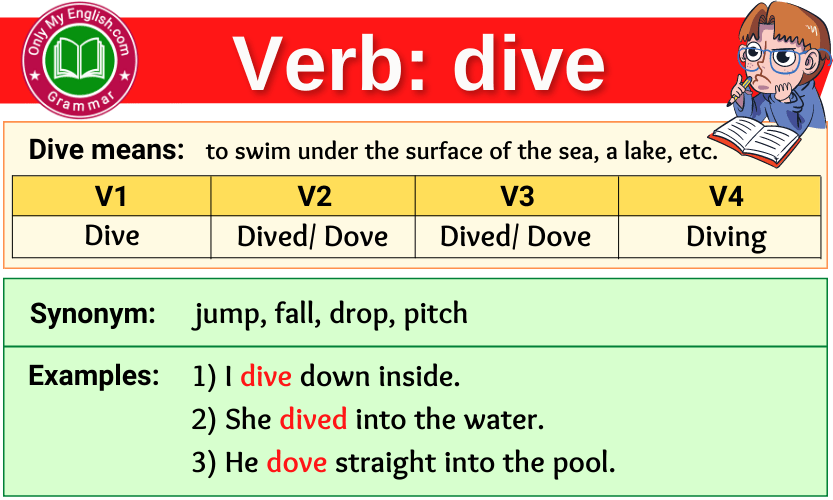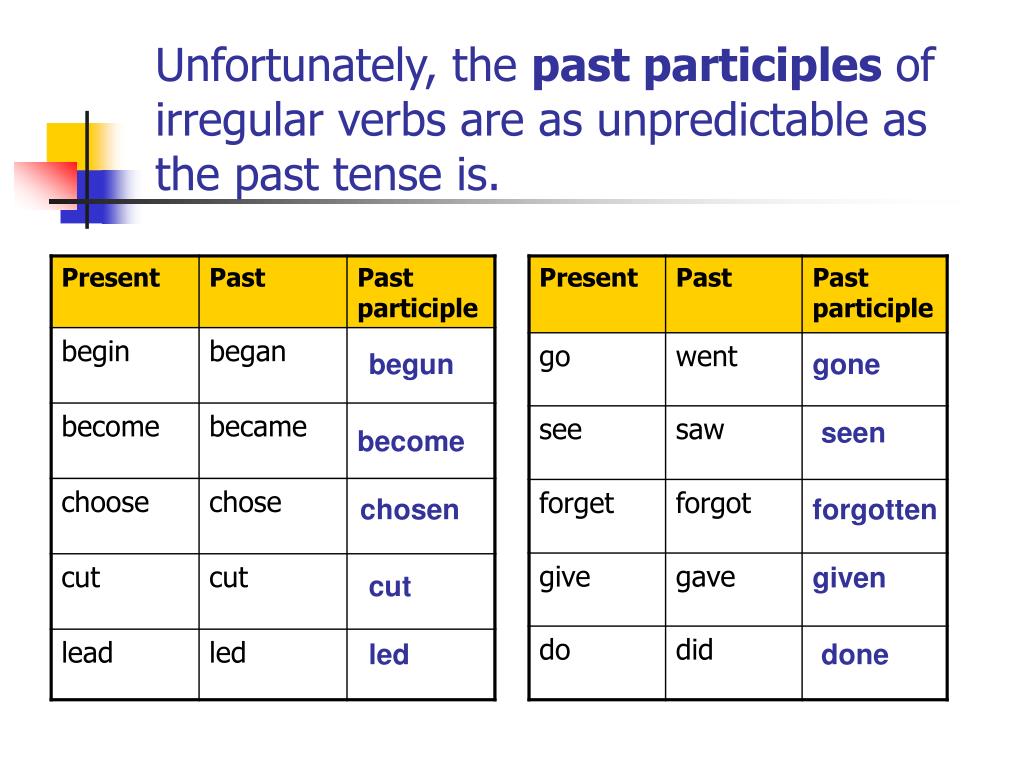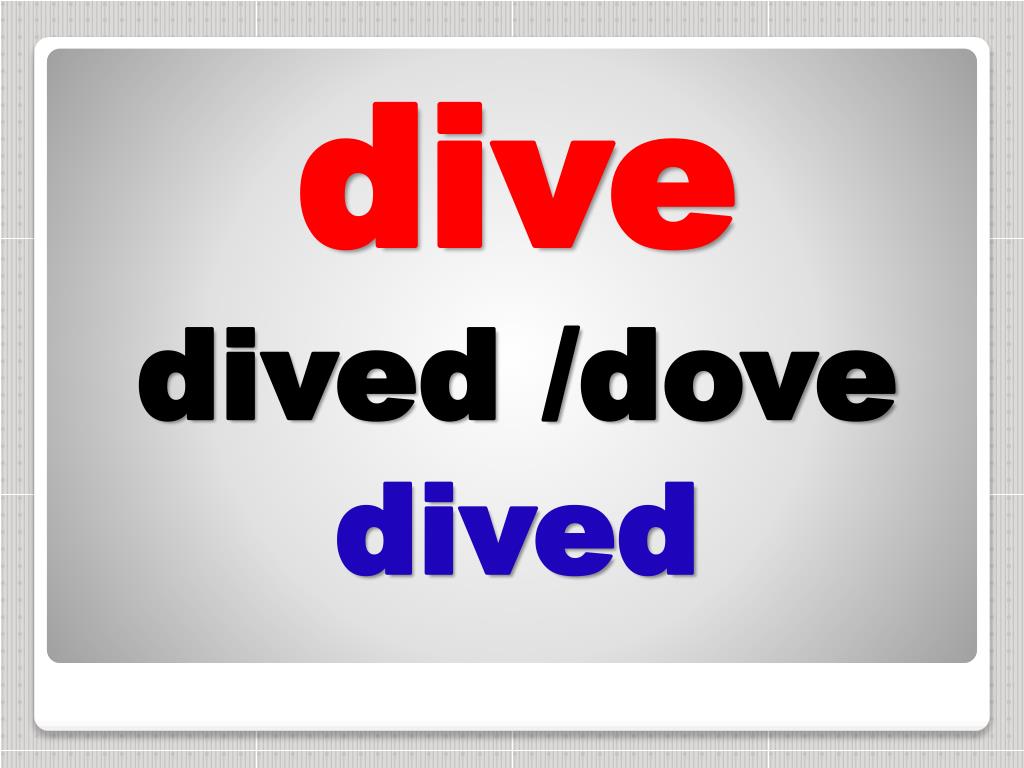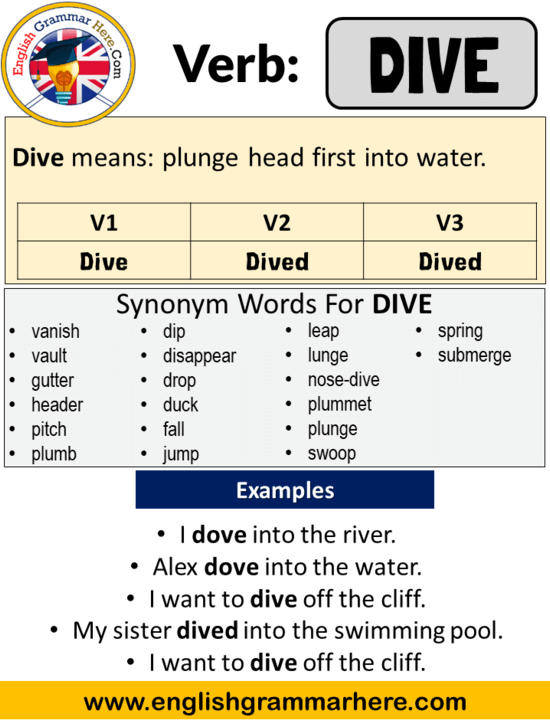
How do we use the verb 'dive' in the past tense? YouTube
The meaning of DIVE is to plunge into water intentionally and especially headfirst; also : to execute a dive. How to use dive in a sentence. Dived vs. Dove: Usage Guide. Dive, which was originally a weak verb, developed a past tense dove, probably by analogy with verbs like drive, drove.

Dive Past Tense Archives EngDic
Here's the word you're looking for. Answer. The past tense of dive is dived or dove (Canada) . The third-person singular simple present indicative form of dive is dives . The present participle of dive is diving . The past participle of dive is dived . Find more words!

Dive Verb Forms Past Tense, Past Participle & V1V2V3 »
Dived and dove are both correct past tense forms of the word dive. Dove is more common in North America, while dived is more prevalent among British English speakers. She dived into the icy cold water. She dove into the icy cold water. However, dived is the only acceptable past participle of dive.

past participle tense 用法 Shophann
The older past tense of dive is dived, which is still standard in British English. Using dove as the past tense of dive began in the 1800s, and is now standard in American English. Both forms are correct today, but you should be aware of regional preference. By the time most native speakers of English are adults, they've got irregular verb.

PPT Simple Past Tense and Past Participle PowerPoint Presentation, free download ID5436869
Is Dove The Past Tense Of Dive? Yes, it's correct. The past tense of "dive" is "dove", and the past participle of dive is "dived". Dived Vs Dove? Both are correct. Still, the former is the past tense of to dive while the latter is the past participle. Is Dived A Word? Yes, absolutely. As stated, this is the past participle of.

Understanding the Past Tense of Dive Dive into Learning English Grammar ESLBUZZ
The simple past tense is for a completed activity that happened in the past. was diving. were diving. was diving. were diving. were diving. were diving. The past progressive tense is for an ongoing activity in the past. Often, it is used to set the scene for another action.

Dived or Dove Which One is the Correct Past Tense?
Find the simple past tense and past particle of the verb dive. Also see how to use the verb dive in the past tense with some examples.

"The Past Tense of Dive" Art Print for Sale by JulesOfTheSea21 Redbubble
Conjugate the verb dive in all tenses: present, past, participle, present perfect, gerund, etc. English Deutsch български Ελληνικά English. dive dive-bomb dive in dive into diverge diversify Look up "dive" in other languages Arabic Bulgarian Chinese.

Past Tense of Dive Dived or Dove? (Pronunciation & Usage)
to come or drop down precipitously: plunge. the temperature is diving. to plunge one's hand into something. dived into his pocket. of an airplane: to descend in a dive. to plunge into some matter or activity. she dove into her studies. to plunge or dash for some place. diving for cover.

dive Making English Fun
Dive in Future Perfect Tense. Singular. Plural. I will have dived or dove. We will have dived or dove. You will have dived or dove. You will have dived or dove. He/She/It will have dived or dove. They will have dived or dove.

Dive Past Tense Verb Forms, Conjugate DIVE
The verb dive originated in the 13th Century from the Old English dufan (to dive, duck, sink) and dyfan (dip, submerge). As a weak verb, the correct past tense should be dived, and that was indeed the case until 1855 when (according to the Oxford English Dictionary) dove first appeared, in American poet Henry Wadsworth Longfellow's Song of.

Past Tense Of Dive Past Tense Definition, Rules and Examples of Past Tenses The
Simple / Indefinite Present Tense. He/She/It dives . I dive. You/We/They dive. Present Continuous Tense. He/She/It is diving. I am diving. You/We/They are diving. Present Perfect Tense.

Dive Past Tense, Present and Future Conjugations, Dive V1 V2 V3 English Grammar Pdf
"Dived" Is More Traditional Than "Dove" "Dived" is the traditional past tense and past participle of "to dive," but "dove" has crept in over the last two centuries — particularly in the US. This is probably a result of the verb "to drive" (with its past tense "drove") becoming more common. "Dove" for Americans. "Dived" for Brits

Past Tense of Dive, Past Participle of Dive, V1 V2 V3 V4 V5 Form of Dive Dive means; Plunge head
Conjugate the English verb dive: indicative, past tense, participle, present perfect, gerund, conjugation models and irregular verbs. Translate dive in context, with examples of use and definition.. dive verb conjugation to all tenses, modes and persons.

Dive Past Tense, V1 V2 V3 V4 V5 Form Of Dive, Past Participle Of Dive and Example Sentences
dive. 'dive' is the model of its conjugation. The preferred past participle and preterit form is dove in American English and dived in British English. infinitive: present participle: past participle: (to) dive. diving. dived, dove.

Dive Past Simple, Simple Past Tense of Dive Past Participle, V1 V2 V3 Form Of Dive English
Learn the three forms of the English verb 'dive'. the first form (V1) is 'dive' used in present simple and future simple tenses. the second form (V2) is 'dove', 'dived' used in past simple tense. the third form (V3) is 'dove', 'dived' used in present perfect and past perfect tenses.